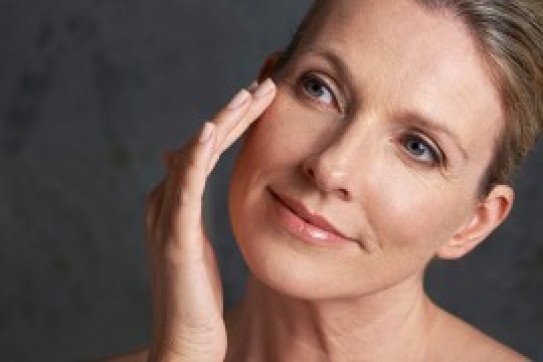
With menopause come potential changes to hormone levels, and as a result, changes to your skin. The natural ageing process has a lot to do with these changes, particularly as we tend to age around the same time that menopause occurs, however menopause itself also causes some changes that can affect our skin.
During menopause, oestrogen hormone levels tend to fall, which can have an impact on the elasticity of your skin. This is because oestrogen is a vital component in the production of collagen, which keeps skin firm. The reduction in oestrogen is what causes sagging, wrinkles, and dry skin.
The good news is that there are plenty of things you can do in order to maintain the health and appearance of your skin during menopause.
Exfoliate and moisturise
Firstly, regular and sufficient moisturising is paramount to good skin. As you go through menopause, keeping your skin well hydrated at all times will go a long way towards maintaining its health and elasticity. Regular exfoliation and the use of a glycolic acid moisturiser can also help smoothen the skin and slow the formation of age spots. Exfoliation helps keep the skin active, as it needs to continually regenerate a new layer, and exfoliating helps to remove dead skin cells.
Protect from the sun
Practicing sun safe techniques is also very important during the menopause period. The ageing process and menopause can result in the skin becoming thinner, meaning it is more susceptible to sun damage. This is particularly important in Australia, where skin cancer is one of the leading types of cancers amongst the population.
Quit smoking
For women who smoke, this is something that can affect the skin in an accelerated fashion during menopause. Nicotine constricts blood vessels, which in turn affect the flow of oxygen to the organs (of which skin is the largest). The other chemicals in cigarettes can also cause permanent damage to cells and affect collagen levels. Giving up smoking is important at any age, but particularly during menopause where the body and skin need as much oxygen and nutrients as they can get to stay healthy.
Creams
There are specific treatments that can also be used to help the skin during menopause, ranging from topical creams to medical treatments. Certain creams, such as vitamin A and E based products, can be applied to help build collagen. There are also techniques like collagen injections and laser treatments that aim to stimulate and increase collagen levels so as to improve the skin. Oestrogen creams applied to your face will also help prevent wrinkles and promote a healthy looking skin.
With common sense and a regular habit of moisturising and exfoliating, many of the effects of menopause on the skin can be managed with little effort. For those looking for additional options, topical creams can be a worthwhile addition to your skincare routine. It’s also worth mentioning that it’s important to look after your skin in the years preceding menopause, and not just during the menopausal years, as this will provide you with a healthy base. The skin is the body’s largest organ and should be treated with the care it deserves.